Cambodian-French filmmaker Davy Chou’s Return to Seoul is one of the more beguiling and enigmatic character studies put to screen. It is also one of the best Korean films this century. At its center is Freddie (Park Ji-mina), a manic, capriciously merciless, guardedly spontaneous, and ferociously impulsive heroine (or femme fatale, depending on how you look at her). Early on, after a few bottles of soju, she speaks about the capacity to sightread music as a metaphor for her privileged mode of living—experiencing life in its extemporaneous state of spontaneous emergence.
This analogy offers a rare glimpse into her largely unpredictable and inscrutable psyche. During the same dinner, Freddie proclaims (or maybe feigns) indifference to being reduced to the stereotypical orphan, flouting the idea of searching for her biological parents while visiting Korea. Upon her arrival, she seems more intent on spreading a very libertarian and French kind of anarchic disruption, interrupting strangers at a soju-friendly K-BBQ joint before regrouping the entire Gogi-jip into a makeshift social arrangement.
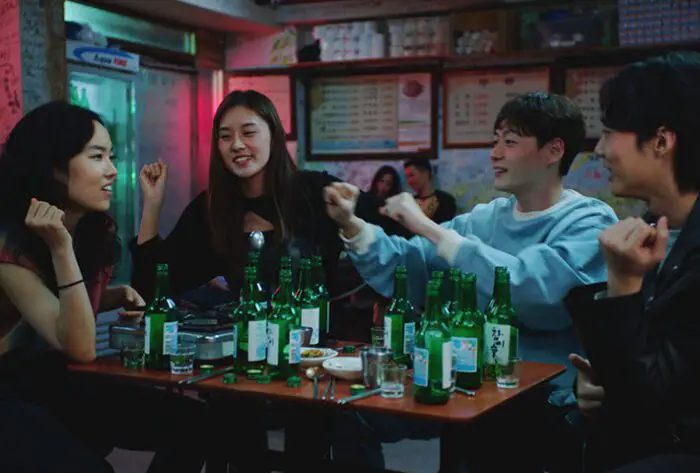
However, just two scenes later in Return to Seoul, after waking up hungover and confused next to a random Korean boy and seducing him to enjoy an intimate moment sober, Freddie is seen contradicting this freewheeling and footloose persona, arriving at the Hammond Adoption Agency. Clearly, she’s not only in Seoul as an intuitive itinerant. She may claim to be breezy and adrift, but a subconscious sadness and yearning guide her wandering spirit. And though her tractable nature may have been influenced by a conversation at the gogi-jip from the night before, her temperamental and elusive façade is hiding something that continues to haunt and hurt her psyche.
As an expatriate in her birth country, Freddie is established early on as one of the thousands of Korean adoptees (recently, both Hirokazu Kore-eda’s Broker (2022) and Justin Chon’s Blue Bayou touch upon this phenomenon) that were relocated abroad over the latter half of the twentieth century. As a foreigner in her native land, Freddie is filled with paradoxes, tangled in language barriers and gaps. And when she finds and then visits her biological Korean father (Oh Kwang-rok), these lacunae come to the forefront.
Freddie is not only estranged from Korean language but an outsider to Korean mannerisms, pleasantries, and social norms to boot. The subtle tweaks Freddie’s translator/hostel receptionist/confidante Tena (Guka Han) makes when moderating Freddie’s French-laced bluntness reveals this disjunct. Tena’s alterations offer a painstakingly accurate insight into how Korean culture emphasizes passive diplomacy and emotional deflection over direct conflict.
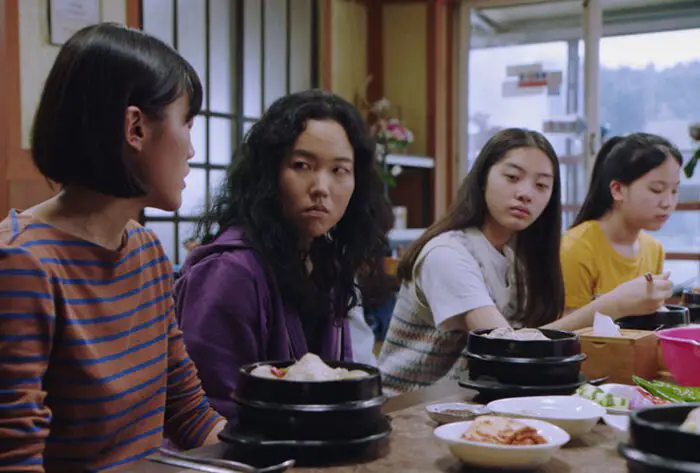
With savvy modulations, she retains the essential message within Freddie’s vicious retorts and rebukes of her maudlin biological father while diluting the impropriety of her fury and vitriol. In some ways, Tena is the saving grace that allows Freddie to avoid antagonizing her father to the point of irreparable damage. Yet, her tactfulness is deceptive, subverting Freddie’s right to express her venomous anger at being forsaken as a newborn.
Similarly, Freddie’s stepmother’s broken translations are comedically nuanced and impeccably realistic. Having endured hundreds of dinners in the thrall of performative pantomime, Google Translate, and stilted colloquialisms, I viscerally related to the frustrations and endearing effort put into each intimately sloppy cultural exchange in Return to Seoul, replete with jumbled interpretations and messy communication obstinacies. There’s even an esoteric throwaway reference to Paris Baguette—the ubiquitous faux-French bakery in Korea—that felt strangely apropos. To add to the leitmotif of cultural overlap and detachment, Chou even seems to offer a visual nod to Lost in Translation, with a shot of Freddie leaning on a neon-soaked taxi window at night, evoking the cultural remove, wonder, and ruefulness felt in Sofia Coppola’s 2003 cult classic.
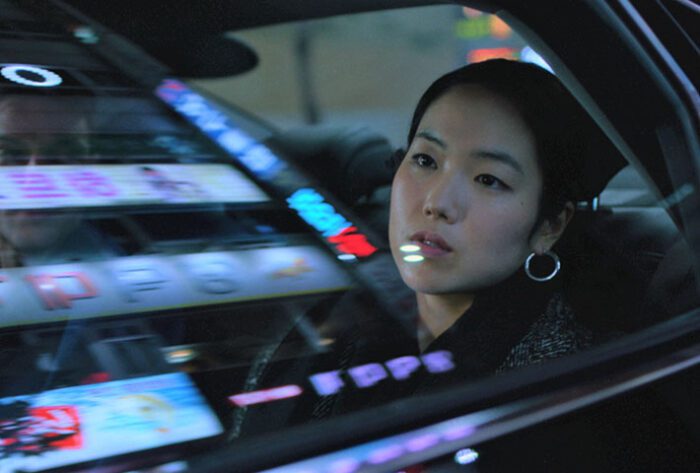
Every soju-soaked moment and interaction in Return to Seoul rings authentic. From Freddie’s shifting perspective on her past to her ever-evolving haircuts to her bipolar relationship to her estranged homeland, her pain, and complex emotional state transcend the more hackneyed and tear-jerker stereotypes and narrative depictions surrounding adoption. Harboring subconscious intentions and emotions that remain hidden and illegible, Freddie is an emblem of self-alienation, existential unrest, and psychosexual volatility. As someone abandoned at birth and forced to assimilate into a surrogate family in an alien country, she embodies the callous disregard for human attachment one might expect.
Repeatedly, she humiliates and rejects boyfriends without a smidgen of guilt or compassion. This includes telling a smitten Korean boy she slept with she has a French boyfriend, cutting past the foreplay on a Tinder date with an arms dealer, hooking up with a classic rock DJ, and abruptly severing ties with a French boyfriend (“I could wipe you from my life with a snap of my fingers” she repeatedly lacerates, without an inciting argument or rationale beyond her abrupt paroxysm) after the latter accompanied her to Korea to meet her biological father and siblings. Freddie also refuses to be seduced by her father’s wishes to move home, learn the language, and marry a Korean boy while simultaneously showing impatience and emotional imperviousness on a Skype call with her French foster mother.
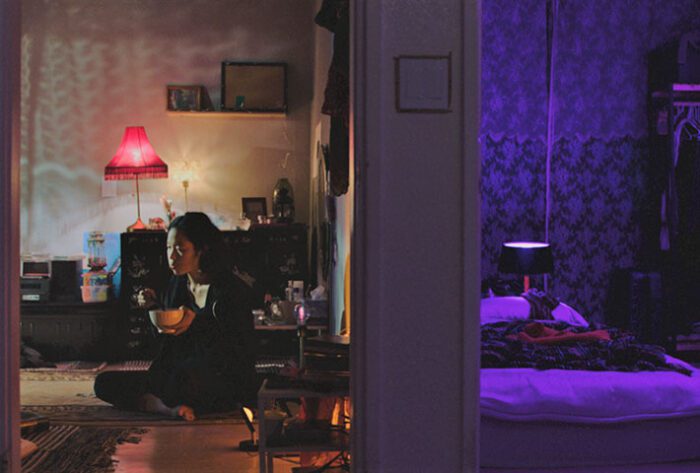
What Return to Soul is getting after is as elusive and unreliable as its flighty protagonist. The film leaps forward years multiple times, and each jump involves a very new iteration of Freddie’s mutable and irascible identity, visually marked by her fashion and haircuts—transforming into a goth chic scenester with strikingly dark lipstick and slicked back hair at one phase, into a sober and vegan bourgeois entrepreneur in the next, and later into a backpacking free-spirit with a pixie haircut.
Her shapeshifting temperament and abrupt lifestyle changes match her protean and wayward ontology, which is forever hunting and recoiling, fleeing and returning, seeking and escaping. Suspended in a cycle of endless reincarnation, Freddie seems to be searching to fill the groundless void her allotment in life as an adoptee imbued her with. She is ephemera and rootless incarnate—too bitter to forgive her father fully and yet stuck yearning for the identity and familial connection she was stripped of at an infant stage.
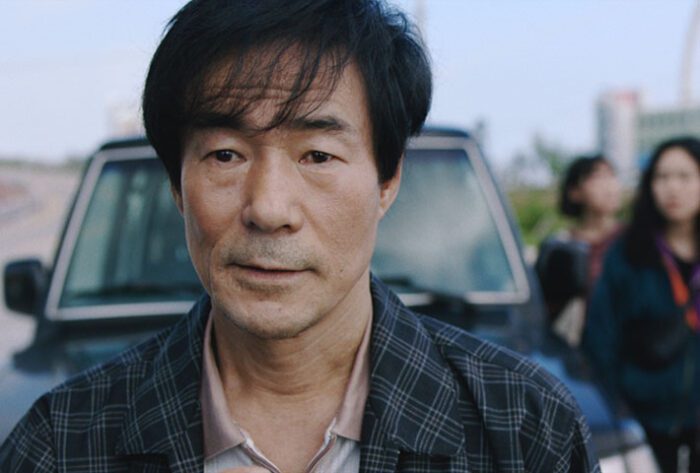
The fact that Freddie was given up out of economic hardship also speaks to her mercenary spirit. As insane as her sudden pivot into working as a career missile dealer may seem, it fits her perfectly—offering her a profession that is hostile for defensive purposes. Like armament, Freddie often appears locked, loaded, and ready to explode. The fact that she never does speaks to her belief that she’s aiding her homeland by helping South Korea defend its sovereignty and territorial integrity by selling the country’s weapons to safeguard the nation from North Korean threats.
Like the divided peninsula —stuck in a ruptured stalemate for decades—Freddie simultaneously exudes a yearning for kinship and an antipathy for such reconciliation. This duality is what imbues her with the reckless abandon and whimsical autonomy that defines her in a state of transience and instability, which she wholly embodies as the film ends—trekking solo in the remote French countryside and stopping by a local inn to sightread a song at the public piano.
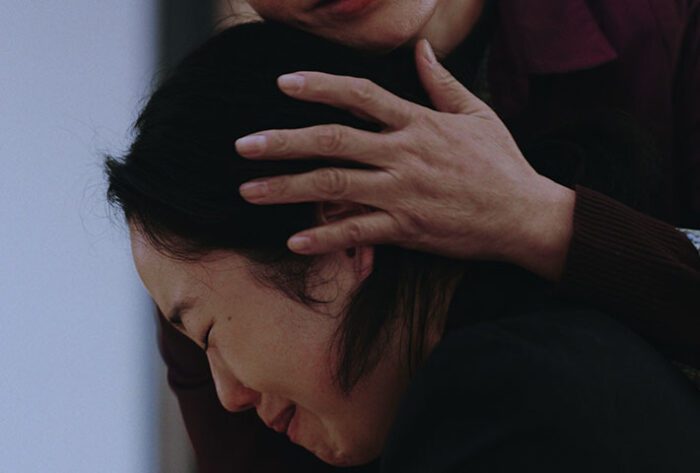
Ultimately, speaking or thinking about this film is hard without interpolating memories and feelings from my expat experience in Seoul. Having spent much of my twenties living in South Korea, Return to Seoul hit a raw, subliminal nerve. Equally acidic and plaintive, and simultaneously observant and headstrong, the film poignantly captures the singular metropolitan city with exquisite honesty and clarity—mirroring a Hong Sang Soo film, only more emotionally satisfying and existentially dynamic than most of Soo’s charming, small-scale ditties.
In retrospect, living in Korea played out like a fever dream, much like this deliriously episodic and elliptical Bildungsroman, which captures an amorphous and unmoored soul as it grapples with the illusory essence of Korea’s sprawling capital—both literally and figuratively, internally and externally, mythically and culturally, casually and with dramatic depth. It’s a film of beautiful and maddening contradictions, reflecting life in all its irreconcilable specificity, melancholy, and sublimity. It is not to be missed.



